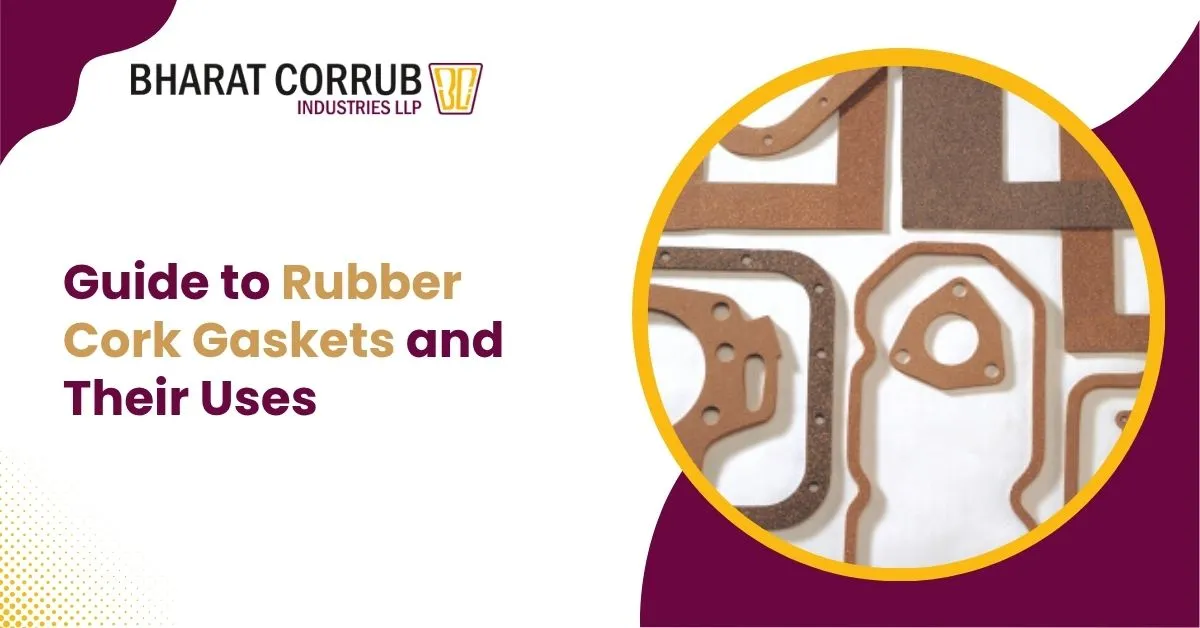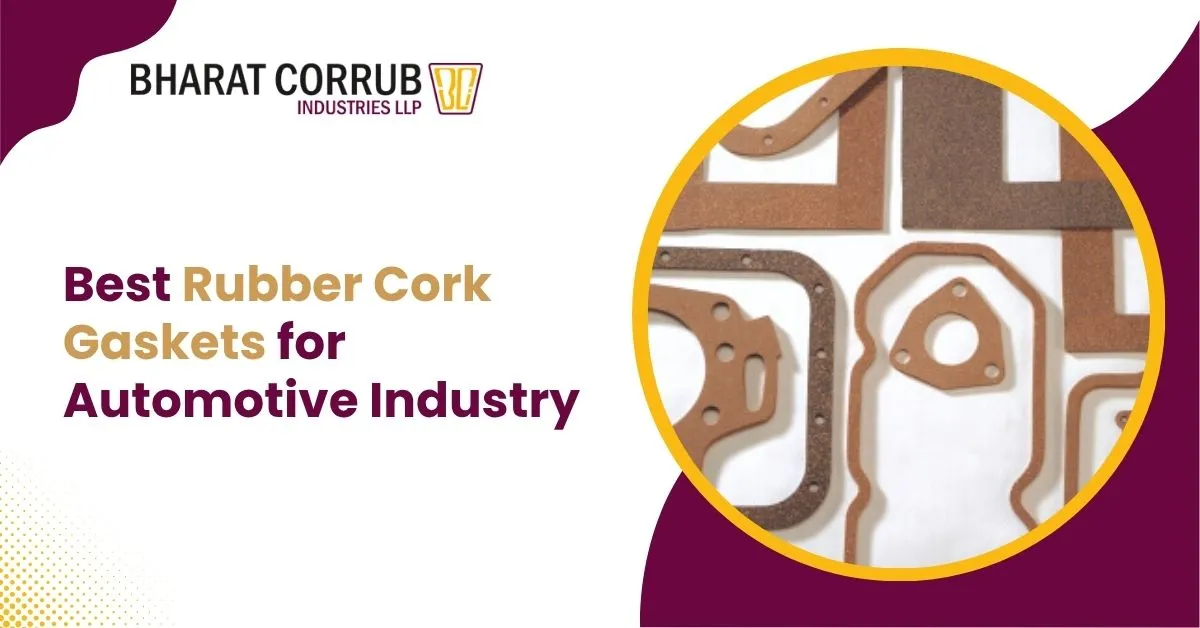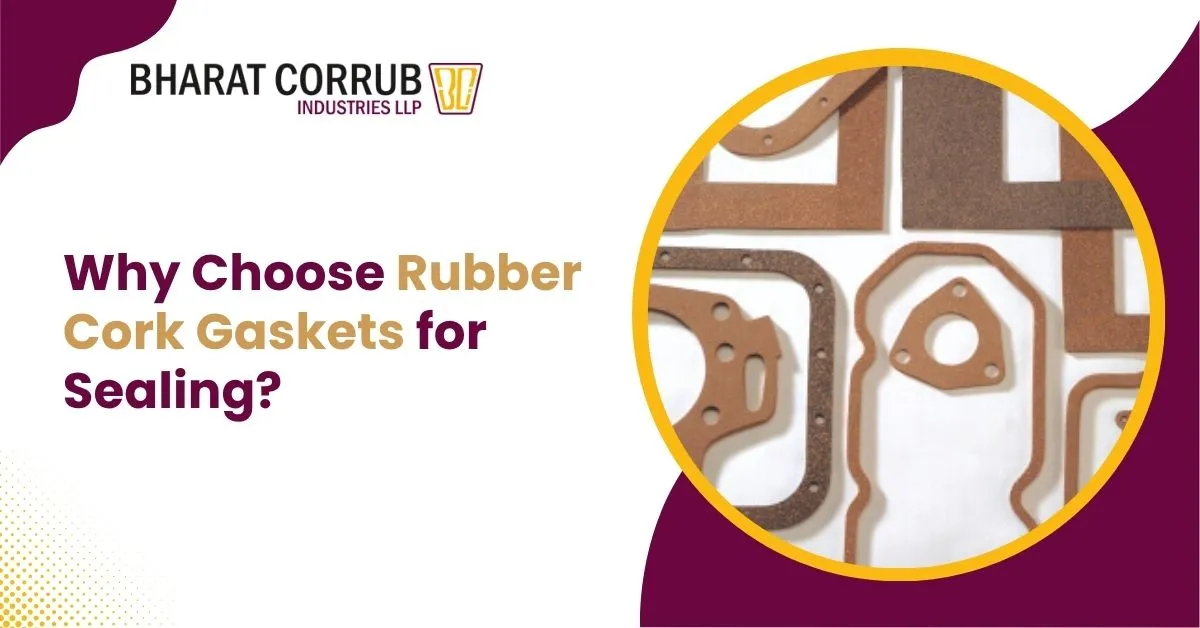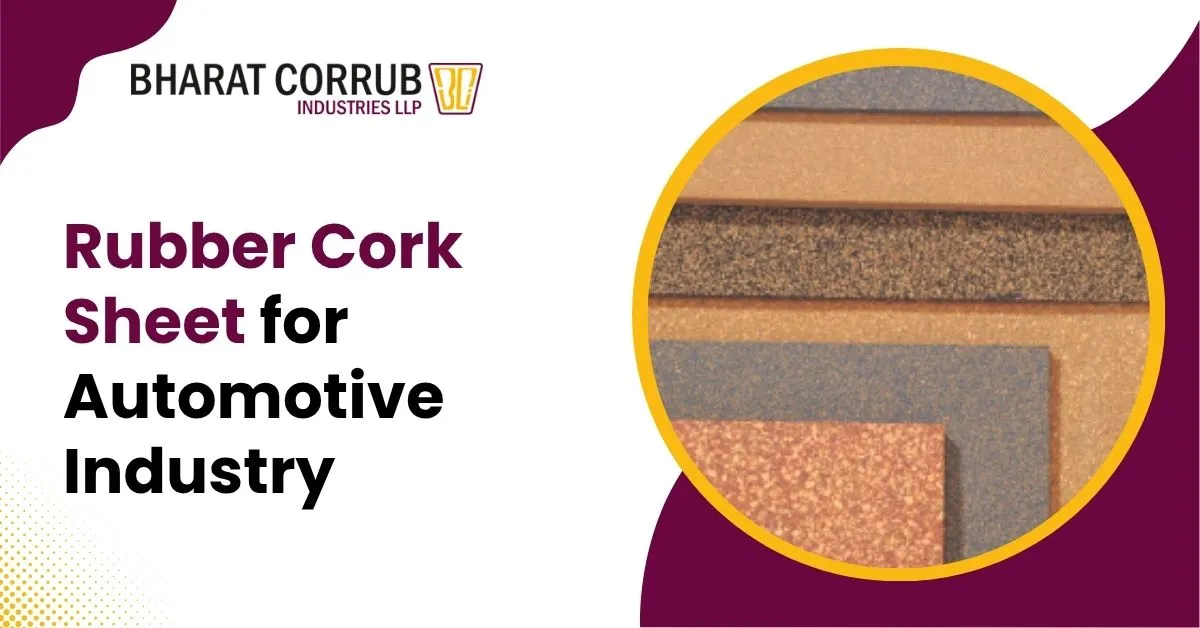In the world of industrial sealing solutions, the right material isn’t just a component — it’s a performance guarantee. That’s why rubber cork gaskets are increasingly the choice of engineers and procurement teams who want a reliable, cost-effective, and robust solution. By combining natural cork’s compressibility with the resilience and chemical resistance of rubber, these gaskets deliver exceptional sealing, adaptability, and durability across a variety of industrial applications.
Whether you’re specifying gaskets for automotive engines, oil-filled transformers, or heavy industrial machinery, this guide helps you understand what rubber cork gaskets are, why they’re used, how to choose the right one, and where they deliver the greatest value.
What Are Rubber Cork Gaskets?
A rubber cork gasket is essentially a composite material made by blending granulated cork particles with a rubber binder—common binders include nitrile (NBR), neoprene, EPDM and sometimes silicone. The cork gives the material its compressibility and adaptability to irregular surfaces, while the rubber adds elasticity, chemical resistance and stability under load. The result: a gasket material that can conform to flange imperfections, resist oils, fuels and solvents, and maintain sealing integrity under vibration, heat, and pressure.
Why Choose Rubber Cork Gaskets?
Here are the key benefits that make rubber cork gaskets stand out:
Excellent Surface Conformability & Low Bolt Load Sealing
Because cork can compress and recover, rubber cork gaskets work very well where flanges may be uneven, or bolt loads are moderate. Their adaptability means you don’t have to over-tighten bolts to achieve a seal — reducing the risk of flange damage or gasket creep.
Strong Resistance to Oils, Fuels and Solvents
In many industrial and automotive applications, exposure to lubricants, fuels or hydraulic fluids is common. Rubber cork gaskets, particularly those using oil-resistant binders like nitrile, provide a reliable barrier against these substances.
Good Vibration and Noise Dampening
Cork has natural shock-absorbing properties, and when combined with rubber, the composite helps reduce transmitted vibration and noise — making these gaskets ideal for engine covers, gearboxes or noisy mechanical assemblies.
Eco-Friendly and Sustainable Element
The cork portion of these gaskets comes from the bark of cork oak trees, which is harvested without killing the tree and regenerates every 9–12 years. So rubber cork gaskets offer a more eco-conscious option compared to some fully synthetic materials.
Versatility Across Industries
From automotive to electronics, from oil field equipment to renewable energy, rubber cork gaskets are used in a wide range of sectors. Their adaptability makes them valuable in many sealing scenarios.
Key Uses & Applications
Let’s look at some of the most common and impactful uses of rubber cork gaskets:
1. Automotive Industry
Rubber cork gaskets are used in oil pan covers, valve covers, timing gear housings, and other engine or drivetrain components where oil/fuel sealing and adaptability to imperfect flange surfaces matter. Their vibration-dampening properties and resistance to fluids make them well-suited here.
2. Electrical / Transformer Applications
In transformers, switchgear and oil-filled electrical equipment, reliable sealing is essential to prevent leaks and maintain insulation integrity. Rubber cork gaskets help achieve this by conforming to surfaces and resisting oil intrusion.
3. General Machinery, Pumps & Compressors
In heavy machinery and industrial equipment, rubber cork gaskets provide sealing in gearboxes, pump covers, inspection plates and more. Their resilience under vibration and moderate temperatures make them valuable in these environments.
4. Construction and Infrastructure
Rubber cork gaskets are used for access covers, inspection doors, vibration pads and other sealing or cushioning applications in building infrastructure, where their compressibility and durability are assets.
5. Low/Medium Pressure Oil & Fluid Applications
Because rubber cork composites combine adaptability with fluid resistance, they find use in many sealing points where other materials might either fail or cost too much — offering a good balance of performance and cost.





